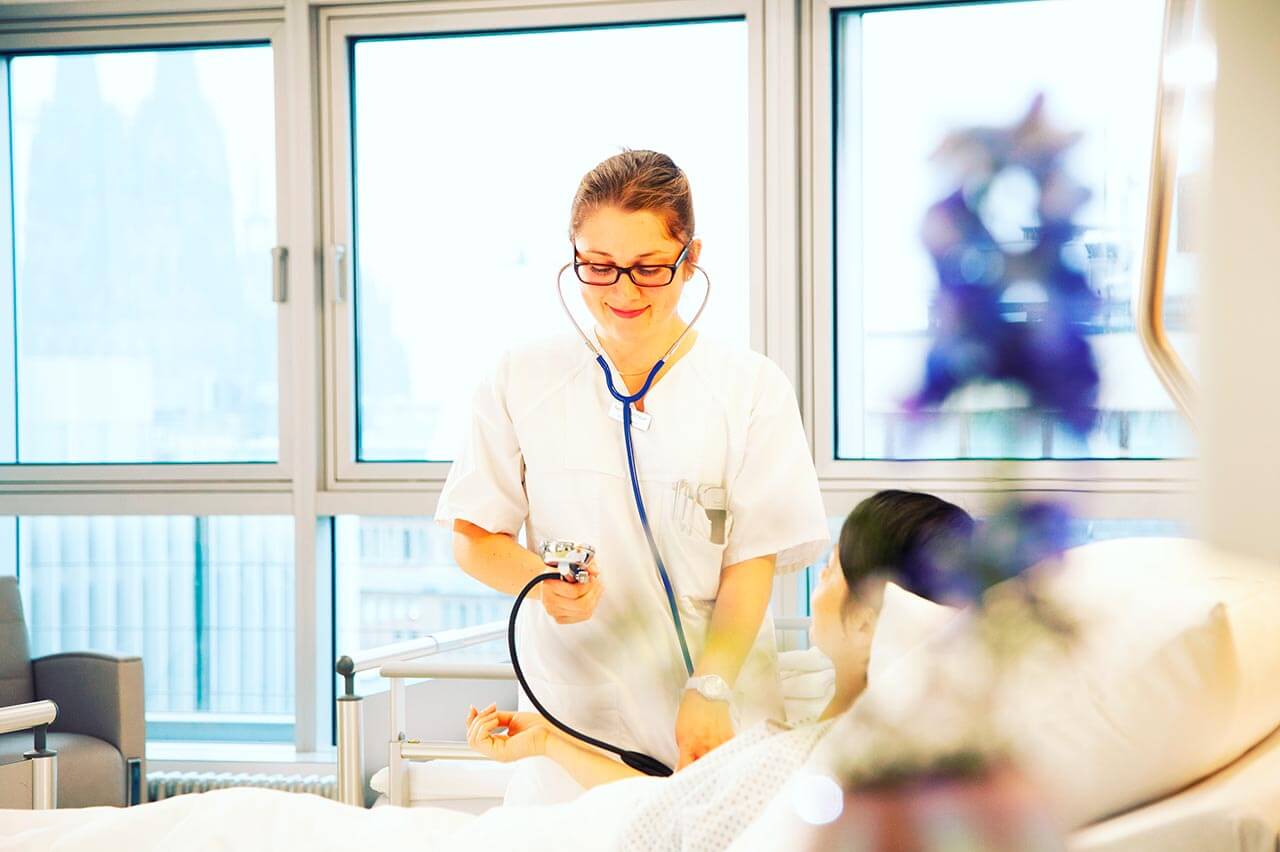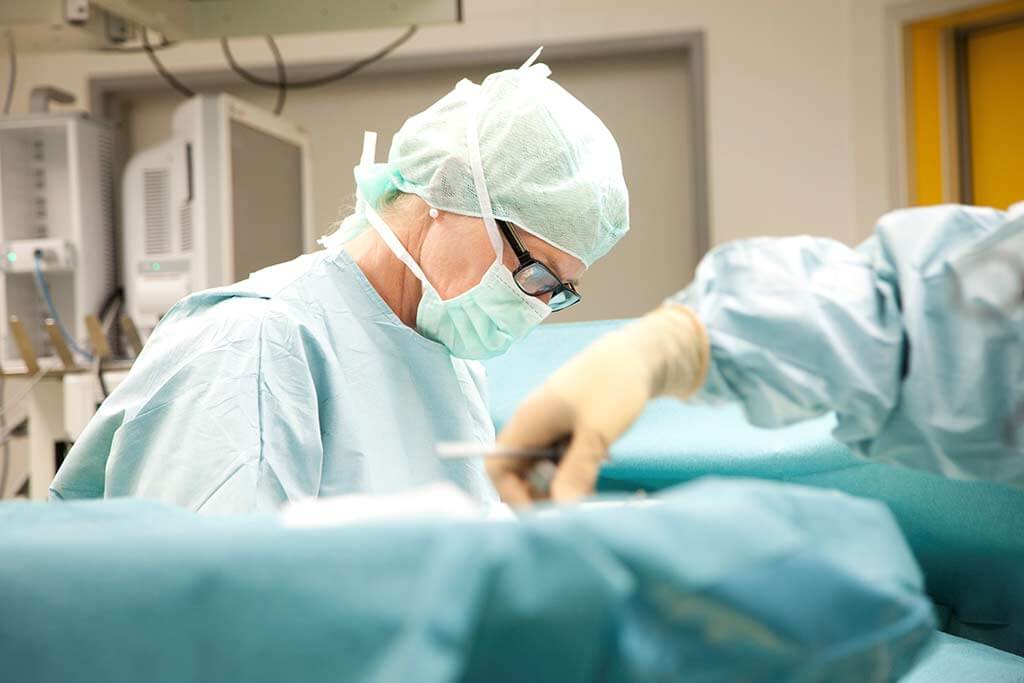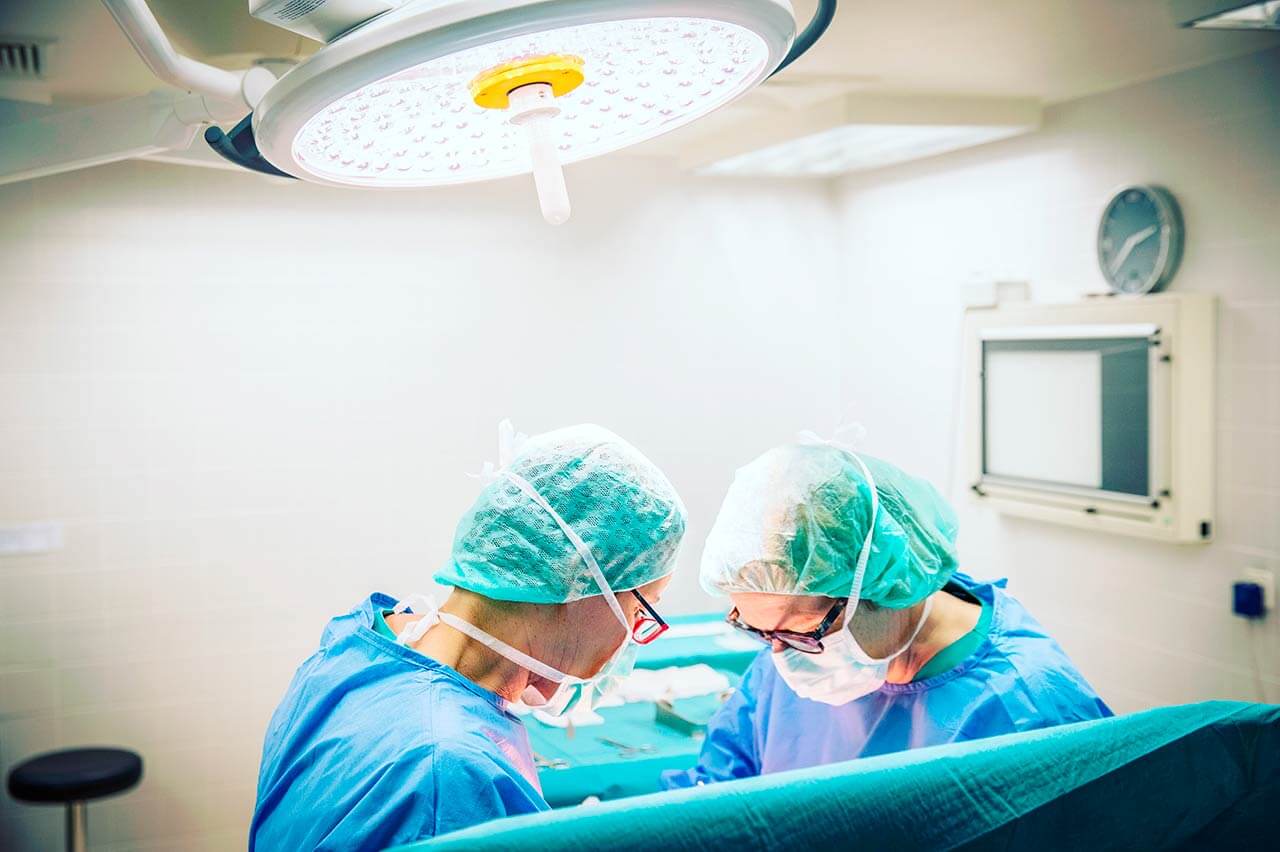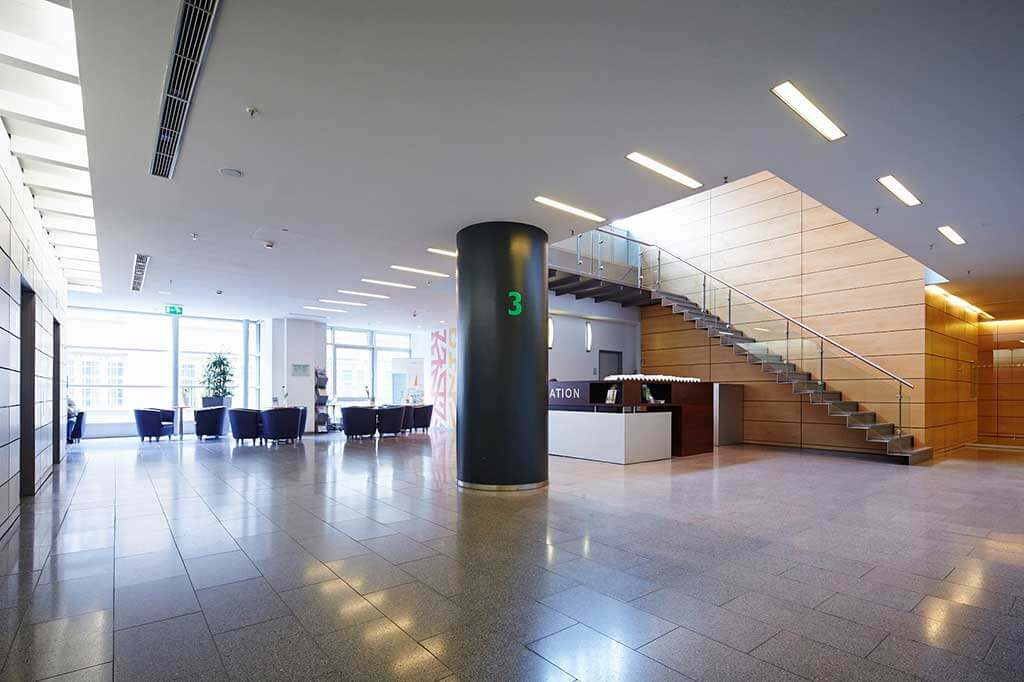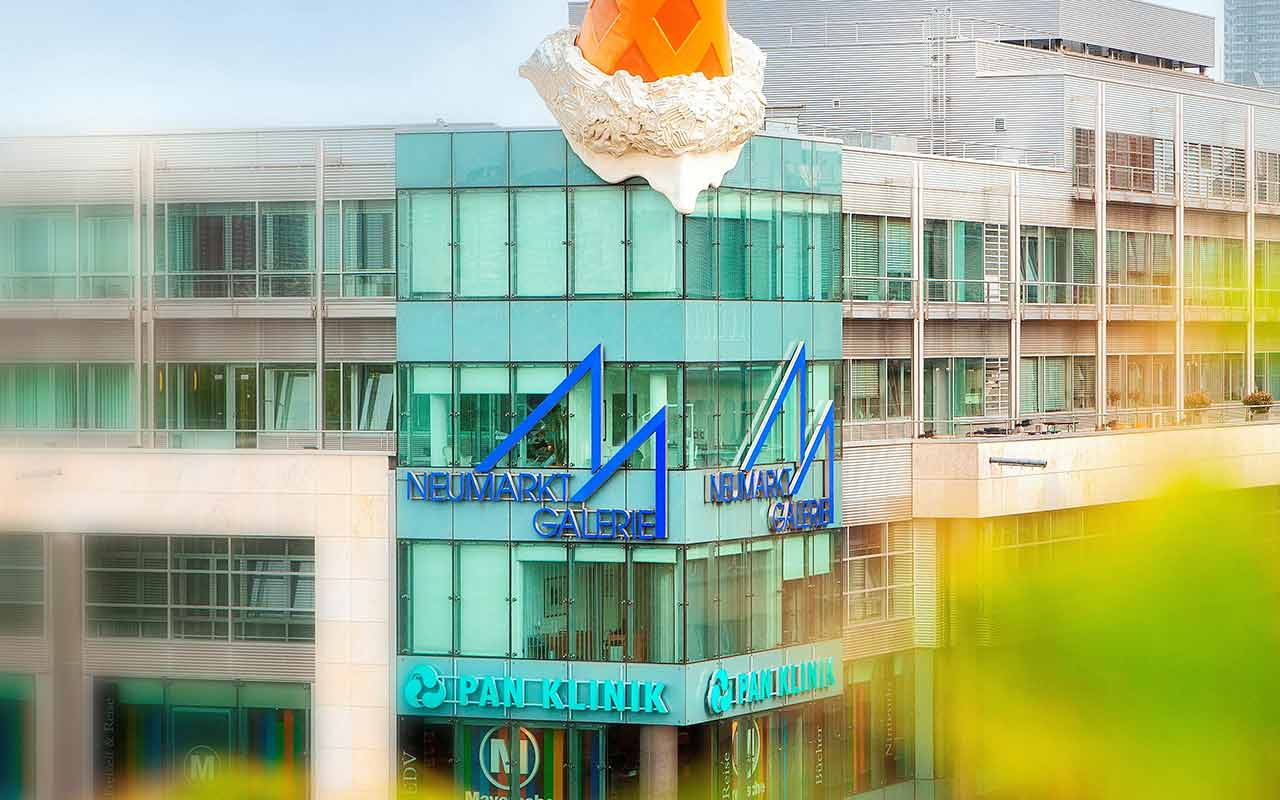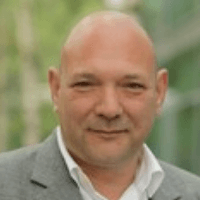
The program includes:
- Initial presentation in the clinic
- history taking
- general clinical examination
- abdominal ultrasound
- MRI scan (on indication 1200 €)
- nursing services
- consultation of related specialist
- development of individual treatment plan
- written statement
Required documents
- Medical records
Service
You may also book:
 BookingHealth Price from:
BookingHealth Price from:
About the department
The Department of Hernia Surgery at the PAN Clinic Cologne offers all the options of modern medicine for the timely detection and effective treatment of hernias. The team of the department's surgeons specializes in the treatment of inguinal, umbilical hernias, epigastric hernias, incisional, diaphragmatic and femoral hernias. The competence of the medical facility also includes interventions for recurrent hernias and laparoscopic surgery on the abdominal organs – gallbladder, cecum (appendix) and stomach. The department is headed by Dr. med. Bernd Stechemesser.
The department can boast of state-of-the-art diagnostic equipment and advanced operating rooms adapted for both classical open and sparing laparoscopic operations. The medical facility has the quality certificate of the German Hernia Society, which confirms the compliance of clinical practice with modern requirements and standards. Special attention should be given to highly professional department's surgeons, who have already performed thousands of successful hernia repair procedures, including especially complex ones. The department performs more than 1,200 interventions every year, so it is not surprising that the medical facility is one of the largest German medical centers specializing in hernia treatment.
The department's medical team successfully performs surgery for all types of hernias, while the most common of them are inguinal hernias. The department uses all modern surgical interventions to eliminate the pathology: abdominal wall plastic surgery with autologous tissues and plastic surgery using special meshes. In the first case, Shouldice and Desarda hernia repair techniques are performed. The principle of the Shouldice technique is to apply a multilayer suture to the transverse fascia to form the posterior wall of the inguinal canal. When performing Desarda procedure, surgeons strengthen the inguinal canal using the patient's own tissues. Totally extraperitoneal (TEP) inguinal hernia repair is the standard treatment method for inguinal hernias using meshes. When performing such operations, the department's specialists use minimally invasive surgical techniques. The team of the department's surgeons prefers this particular operation, since it is performed in the preperitoneal space, does not require laparotomy, guarantees minimal postoperative pain and almost eliminates the risk of damage to internal organs and the risk of developing adhesions. With all these advantages, totally extraperitoneal (TEP) inguinal hernia repair allows achieving a high-quality treatment result. The doctors of the medical facility often resort to Lichtenstein technique and transinguinal preperitoneal technique (TIPP). These interventions are performed using open surgical techniques, and therefore they are usually last-line therapy and are used only in extremely complex clinical cases. The optimal type of surgical intervention is selected for each patient only on an individual basis. In addition, the attending physician provides the patient with information about possible treatment options and explains each of them in detail.
Epigastric hernias and incisional hernias are also quite common in the clinical practice of the department's doctors. To treat these types of hernias, they mostly use hernia repair surgery with mesh placement. The specialists of the medical facility offer patients with epigastric hernias and incisional hernias two effective minimally invasive interventions: MILOS procedure and PUMP procedure. The department's therapeutic options are complemented by the treatment of diaphragmatic hernias using the 3D laparoscopic technique for mesh implantation.
The department's range of medical services includes:
- Surgical treatment of inguinal hernias
- Shouldice technique
- Desarda technique
- Totally extraperitoneal (TEP) inguinal hernia repair
- Lichtenstein technique
- Transinguinal preperitoneal technique (TIPP)
- Surgical treatment of epigastric hernias and incisional hernias
- MILOS procedure
- PUMP procedure
- Surgical treatment of diaphragmatic hernias
- Innovative 3D laparoscopic surgery with mesh placement
- Surgical treatment of recurrent hernias
- Laparoscopic surgery on the abdominal organs – gallbladder, cecum (appendix) and stomach
- Other surgical options
Curriculum vitae
Higher Education
- 1982 - 1984 Study of Human Medicine, Eberhard Karls University of Tuebingen.
- 1984 - 1990 Study of Human Medicine, Free University of Berlin.
Professional Career
- 1990 - 1991 Internship, Department of Surgery at the Vivantes Hospital Wenckebach, Berlin-Tempelhof.
- 01.1992 - 02.1992 Research Fellow, Department of Dermatology at the University Hospital Carl Gustav Carus Dresden.
- 03.1992 - 09.1992 Assistant Physician, Department of Surgery at the St. Mary's Hospital, Berlin-Lankwitz.
- 10.1992 - 09.2000 Assistant Physician, Department of Surgery at the Vivantes Hospital Wenckebach, Berlin-Tempelhof.
- 09.2000 - 07.2007 Physician, Department of Surgery, Vivantes Hospital Am Urban, Berlin-Kreuzberg.
- 08.2005 - 07.2007 Managing Senior Physician, Department of Surgery, Vivantes Hospital Am Urban, Berlin-Kreuzberg.
- 08.2007 - 07.2012 Senior Physician and Head of the Section of Hernia Surgery and Minimally Invasive Surgery, Vivantes Auguste Viktoria Hospital, Berlin-Schoeneberg.
- Since 08.2012 Chief Physician of the Department of Hernia Surgery at the PAN Clinic Cologne.
Other Focuses
- Responsible for board certification as a Member of the Berlin Medical Association.
- Lectures on hernia surgery for medical students.
- Organization and active participation in numerous congresses, symposia and other events dedicated to hernia surgery (both in Germany and abroad).
- Founder and Scientific Director of the "Days of Hernia Surgery in Berlin".
- Author of the book "German School for Hernia Repair Surgery" ("Deutsche Henienschule").
Memberships in Professional Societies
- Berlin Surgical Society.
- Professional Association of German Surgeons.
- German Hernia Society (Board Member).
- European Hernia Society.
- German Society of Surgery.
- German Society of General and Visceral Surgery.
- Working Group on Hernia Surgery of the German Society for General and Visceral Surgery (Associate Board Member).
- Professional Association of Surgeons of Central Germany.
- Herniamed Scientific Advisory Board.
- Argentine Hernia Society (Honorary Member).
- International Endohernia Society (IEHS) – Founding Member.
- Scientific Board of Hernia Journal.
- European Board of Abdominal Wall Journal.
Photo of the doctor: (c) PAN Klinik
About hospital
The PAN Clinic Cologne is a multidisciplinary medical facility that combines advanced medicine, excellent quality of patient care and a high level of comfort. Founded in 1999, the clinic is located in the very heart of Cologne. During this time, the medical complex has gained long clinical experience, but at the same time it has preserved its primary concept of medical care – high-quality diagnostics and treatment using the achievements of modern medicine.
Today, a huge team of doctors at the clinic admits patients in 25 medical fields, including neurosurgery, neurology, orthopedics, cardiology, gynecology, mammology, urology, endocrinology, plastic surgery, etc. It is worth noting that the clinic employs the best specialists with a wealth of experience and thorough clinical training in the best medical facilities in Germany, other countries of Europe and USA. The clinic's medical team includes many professors who are distinguished by outstanding achievements in the treatment of diseases of a particular profile and who successfully conduct research activities, participate in national and international congresses, symposia and other events.
The clinic annually provides treatment to more than 10,000 patients, and more than 3,000 interventions of varying complexity are performed in its operating rooms. The operating theaters have state-of-the-art technology and equipment for classical open surgery and minimally invasive interventions. In addition, all departments of the medical facility have advanced diagnostic equipment, so that doctors always make the correct diagnosis, which determines the success of subsequent treatment. During the therapeutic process, the specialists strive to choose the most sparing, but at the same time highly effective treatment regimen.
The quality of medical services provided in the clinic is awarded with the prestigious DIN ISO 9001 certification, and therefore patients trust their health to doctors with complete confidence and benefit from the optimal treatment of the European standard.
Photo: (с) PAN Klinik, (c) depositphotos
Accommodation in hospital
Patients rooms
The patients of the PAN Clinic Cologne live in light and cozy rooms with a modern design. A standard patient room includes a comfortable automatically adjustable bed, a bedside table, an air conditioning, a DVD player, a telephone, a TV and a nurse call system. The patient rooms also have Wi-Fi. Each patient room has an ensuite bathroom with shower and toilet. The bathroom also has a hairdryer and towels.
If desired, the patients can live in enhanced-comfort rooms. These patient rooms are distinguished by their more exclusive interiors, as well as beautiful views of the Cologne Cathedral and cityscapes. The bathrooms in these enhanced-comfort facilities include disposable slippers, a bathrobe, towels and toiletries. In addition, the patients living in enhanced-comfort rooms are offered a special menu.
Meals and Menus
The patient and his accompanying person are offered tasty and balanced three meals a day: buffet style breakfast and dinner, as well as lunch consisting of 3-4 courses. If for some reason you do not eat all the foods, you will be offered an individual menu. Please inform the medical staff about your dietary preferences prior to treatment.
Further details
Standard rooms include:
Religion
The religious services are available upon request.
Accompanying person
During the inpatient program, the accompanying person can live with the patient in a patient room or a hotel of his choice. Our managers will help you choose the most suitable option.
Hotel
During the outpatient program, the patient can stay at the hotel of his choice. Our managers will help you choose the most suitable option.
